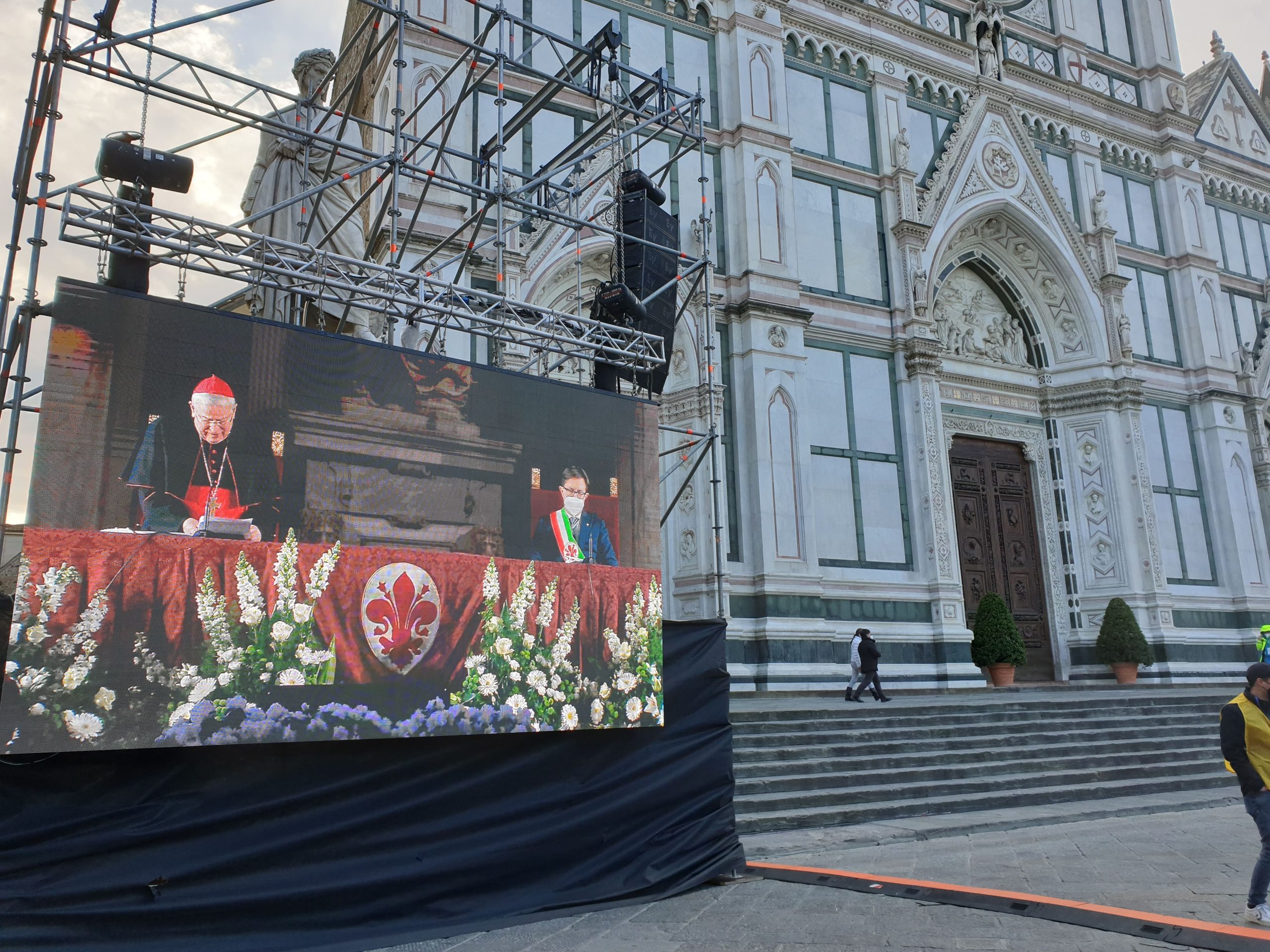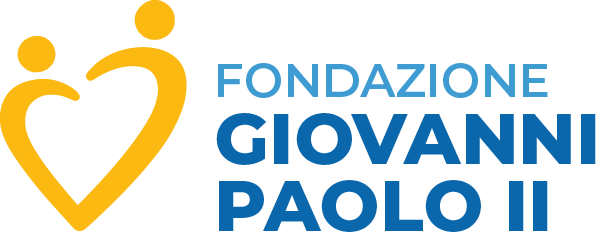
Uno sguardo su “Mediterraneo frontiera di pace”
Dal 23 al 27 febbraio si è svolto a Firenze il secondo incontro di riflessione e spiritualità «Mediterraneo Frontiera di Pace». Il convegno ha seguito, sviluppandole, le linee tracciate alla riunione tenutasi a Bari nel febbraio 2020, quando Papa Francesco aveva affidato un’importante «opera di riconciliazione e di pace» ai vescovi cattolici delle diocesi che si affacciano sul Mediterraneo. La novità del secondo incontro è stata quella di avere a Firenze, negli stessi giorni, molti sindaci del Mediterraneo e ambasciatori convocati dal sindaco di Firenze Dario Nardella.
I sindaci hanno lavorato in Palazzo Vecchio, mentre i vescovi nella basilica domenicana di Santa Maria Novella. Si sono poi ritrovati insieme sabato 26 e domenica 27 febbraio. Lo scopo dell’intero convegno era la scrittura di una Carta redatta insieme dal mondo laico e dai vescovi e patriarchi delle Chiese Cattoliche. Al termine della settimana era previsto un incontro congiunto in Palazzo Vecchio, con Papa Francesco che avrebbe poi incontrato alcuni profughi, nella sala d’Arme di Palazzo Vecchio, e presieduto la Messa nella basilica di Santa Croce. Purtroppo, l’aggravarsi di un’acuta gonalgia ha costretto Papa Francesco a rimanere in Vaticano e a non presiedere a celebrazione eucaristica di domenica 27 febbraio.
I luoghi storici della politica e della cristianità fiorentina hanno fatto da cornice all’evento: la Basilica domenicana di Santa Maria Novella, dove i domenicani sono presenti da ottocento anni; Palazzo Vecchio, sede del Comune; e la Basilica francescana di Santa Croce, che aveva ospitato nell’ottobre nel 1955 la celebrazione della Messa presieduta dall’allora arcivescovo di Firenze, cardinal Elia Dalla Costa, con i sindaci convocati dal sindaco La Pira in Palazzo Vecchio. La foto della stretta di mano del sindaco di Mosca e dell’arcivescovo Dalla Costa fece il giro del mondo.
La città di Firenze è stata scelta come sede per il secondo convegno dal cardinale Gualtiero Bassetti, presidente della Conferenza Episcopale Italiana, proprio per la sua storia. Infatti negli anni ‘50 e ‘60 si tennero a Firenze i «Colloqui Mediterranei», organizzati dal Sindaco Giorgio La Pira, oggi proclamato dalla Chiesa Venerabile, allo scopo di favorire relazioni internazionali tese alla costruzione della pace e del dialogo fra i popoli che abitano sulle sponde del Mediterraneo. Nell’ottobre del 1955 La Pira convocò a Firenze, in Palazzo Vecchio, i sindaci delle principali città del mondo proprio per affrontare il tema della pace, negli anni della guerra fredda.
Nell’ottobre del 1986 papa Giovanni Paolo II, nell’Angelus proclamato dal sagrato di Santa Croce, promosse, incontrando i giovani che gremivano la piazza, i valori del dialogo intergenerazionale. Perciò, a partire da questa eredità, la città è stata in grado di raccogliere il mandato «barese» e dare il via ai lavori.
Chiunque abbia avuto la fortuna di assistere al convegno dai locali della basilica di Santa Maria Novella ha notato il clima di grande dialogo e di fratellanza che ha animato il confronto fra i vescovi e i patriarchi presenti.
Nonostante, infatti, vescovi e sindaci lavorassero in sedi separate e su temi differenti, appariva evidente come queste linee parallele stessero convergendo verso un unico risultato, concretizzato nella Carta di Firenze. Ed è proprio da questo dialogo fra vescovi e sindaci che sono scaturite le affermazioni contenute nella «Carta di Firenze», solennemente sottoscritta dal sindaco Dario Nardella e dall’arcivescovo Gualtiero Bassetti.
Passato e presente. In apertura dei lavori il Presidente del Consiglio Italiano Mario Draghi ricordava i Colloqui Mediterranei, rievocando lo spirito profetico e le intuizioni politiche di Giorgio La Pira, sostenendo che «le nazioni che si affacciano sul mare hanno un destino comune; che il dialogo tra le religioni di Abramo […] sia necessario per il mantenimento della pace». Come il Presidente del Consiglio, anche il Sindaco Nardella ha citato La Pira utilizzando una frase ancora oggi fondamentale: «unire le città per unire le nazioni». Anche l’arcivescovo di Firenze, Cardinale Giuseppe Betori, ha richiamato l’importanza di porre le «radici nel pensiero e nell’opera di Giorgio La Pira». In ogni conversazione e conferenza stampa in Santa Maria Novella si avvertiva il continuo riferimento a quello spirito ecumenico ben espresso dalle amministrazioni fiorentine del secondo dopoguerra. Non è un caso che proprio il primo punto della Carta di Firenze menzioni esplicitamente l’ispirazione «all’eredità di Giorgio La Pira, l’ex Sindaco di Firenze, che negli anni Cinquanta promuoveva il dialogo interculturale e interreligioso tra le Città, e in particolare tra le Città del Mediterraneo».
Sia i vescovi che i sindaci non si sono lasciati trascinare da prospettive nostalgiche. Al contrario, l’esperienza passata è stata sempre rievocata come ponte strategico per comprendere le complessità del presente e per progettare efficaci linee operative.
In quest’ottica si inserisce anche l’intervento del Prof. Possieri dell’Università degli Studi di Perugia che ha incitato i vescovi a discutere sul ruolo della cristianità nelle città per combattere le nuove solitudini e le antiche discriminazioni, per diffondere pace nelle «città senza volto». Le riflessioni sulla centralità del Mediterraneo hanno prodotto nuove considerazioni attorno al ruolo che i popoli possono avere nel dialogo interreligioso, nello sviluppo di una educazione condivisa e nella difesa degli ambienti a rischio. La Carta di Firenze, infatti, riconosce «l’importanza di creare programmi universitari comuni», di «promuovere opportunità di lavoro di qualità per le categorie svantaggiate (giovani e donne)» e invoca «che i Governi adottino regole certe e condivise per proteggere l’ecosistema mediterraneo al fine di promuovere una cultura circolare del Mediterraneo in armonia con la natura e con la nostra storia».
Mediterraneo ed Europa. La seconda coordinata non poteva che essere geografica. Durante le giornate di lavoro nella Basilica di Santa Maria Novella giungevano le tragiche notizie che provenivano da oriente. Purtroppo, la crisi in Ucraina si stava in quei giorni aggravando fino a portare all’invasione da parte della Russia e i vescovi non potevano che rimanere in attento ascolto delle esigenze dei popoli dell’est Europa.
Ecco perché, anche alla luce della tragica invasione dell’Ucraina, in Santa Maria Novella non si è avvertita la necessità di modificare le tematiche all’ordine del giorno, le quali al contrario apparivano ancora più urgenti. La stessa Carta di Firenze attesta che sindaci e vescovi sono consapevoli del fatto «che il Mediterraneo è stato storicamente il crocevia delle culture europee e dell’Asia occidentale, dell’emisfero settentrionale e meridionale e che può ricoprire un ruolo cruciale per la pace e lo sviluppo delle nazioni attraverso la cooperazione tra le sue città e le sue comunità religiose». Non solo questo: riconosce anche che «le politiche migratorie nel Mediterraneo e alle frontiere devono sempre rispettare i diritti umani fondamentali». In altre parole, Mediterraneo è Europa e viceversa. Perciò garantire la pace nel Mare Nostrum è un prerequisito indispensabile per promuovere un’intesa disarmata fra i paesi del Vecchio Continente.
Ed è in questo mare – come ha sottolineato il cardinale Bassetti, nell’omelia di domenica che ha concluso il Convegno – che il Vangelo «ha compiuto i suoi primi passi», contribuendo alla formazione di un’Europa profondamente innestata sui valori del cristianesimo. «Anche oggi» – ha proseguito Bassetti – «[la Parola di Dio] non ci aliena dalla realtà, ma al contrario ci chiede di andare al cuore dei problemi e di porre così le basi per un mondo migliore».

